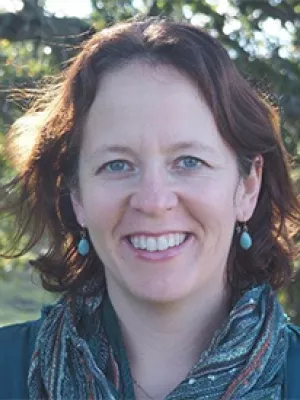
Kimberly Nicholas
Senior Lecturer, Docent

Evaluating safeguards in a conservation incentive program : participation, consent, and benefit sharing in indigenous communities of the Ecuadorian Amazon
Author
Summary, in English
Critics suggest that Reducing Emissions from Deforestation and forest Degradation (REDD+) may not generate improvements in well-being for participating stakeholders, and may in fact undermine indigenous rights. To ensure positive social benefits from REDD+ projects, the United Nations REDD Programme has proposed core safeguards, including local stakeholder participation; free, prior, and informed consent; and equitable distribution of benefits. However, there is little
experience to date in implementing and evaluating these safeguards. We apply these core safeguards as a framework to study
how people in indigenous communities in the Ecuadorian Amazon perceive and benefit from Programa Socio Bosque, a
conservation incentive program in Ecuador’s national REDD+ Programme portfolio. We interviewed 101 individuals in five
communities that had participated in the Programa Socio Bosque for at least 18 months. Close to 80% of respondents reported
that the decision to join Socio Bosque was made democratically, that they were familiar with the conservation goals of Socio
Bosque, and that they were aware which area their community had selected for conservation. However, only 17% were familiar
with the overall terms of the conservation agreement, implying that they were either not fully informed of or did not fully
understand what they were consenting to in joining the program. Although the terms of the program require a community
investment plan to be democratically developed by community members, less than half of respondents were aware of the existence
of the investment plan, and fewer than 20% had participated in its development. The majority of respondents (61%) reported
that they did not know the amount of incentives that their community currently receives, and only 44% stated that incentives
were managed democratically in communal assemblies. Moreover, although a slight majority (53%) said they had noticed
benefits to the community from participating in Socio Bosque, the majority (57%) said their family had not received any benefits.
These results demonstrate a need to strengthen inclusive participation, better inform participants about program design, and
improve the management of incentives within communities if incentive-based conservation programs are to achieve their social
development and environmental goals.
experience to date in implementing and evaluating these safeguards. We apply these core safeguards as a framework to study
how people in indigenous communities in the Ecuadorian Amazon perceive and benefit from Programa Socio Bosque, a
conservation incentive program in Ecuador’s national REDD+ Programme portfolio. We interviewed 101 individuals in five
communities that had participated in the Programa Socio Bosque for at least 18 months. Close to 80% of respondents reported
that the decision to join Socio Bosque was made democratically, that they were familiar with the conservation goals of Socio
Bosque, and that they were aware which area their community had selected for conservation. However, only 17% were familiar
with the overall terms of the conservation agreement, implying that they were either not fully informed of or did not fully
understand what they were consenting to in joining the program. Although the terms of the program require a community
investment plan to be democratically developed by community members, less than half of respondents were aware of the existence
of the investment plan, and fewer than 20% had participated in its development. The majority of respondents (61%) reported
that they did not know the amount of incentives that their community currently receives, and only 44% stated that incentives
were managed democratically in communal assemblies. Moreover, although a slight majority (53%) said they had noticed
benefits to the community from participating in Socio Bosque, the majority (57%) said their family had not received any benefits.
These results demonstrate a need to strengthen inclusive participation, better inform participants about program design, and
improve the management of incentives within communities if incentive-based conservation programs are to achieve their social
development and environmental goals.
Department/s
- LUCSUS (Lund University Centre for Sustainability Studies)
Publishing year
2013
Language
English
Pages
1-16
Publication/Series
Ecology & Society
Volume
18
Issue
4
Document type
Journal article
Publisher
The Resilience Alliance
Topic
- Social Sciences Interdisciplinary
Status
Published
ISBN/ISSN/Other
- ISSN: 1708-3087